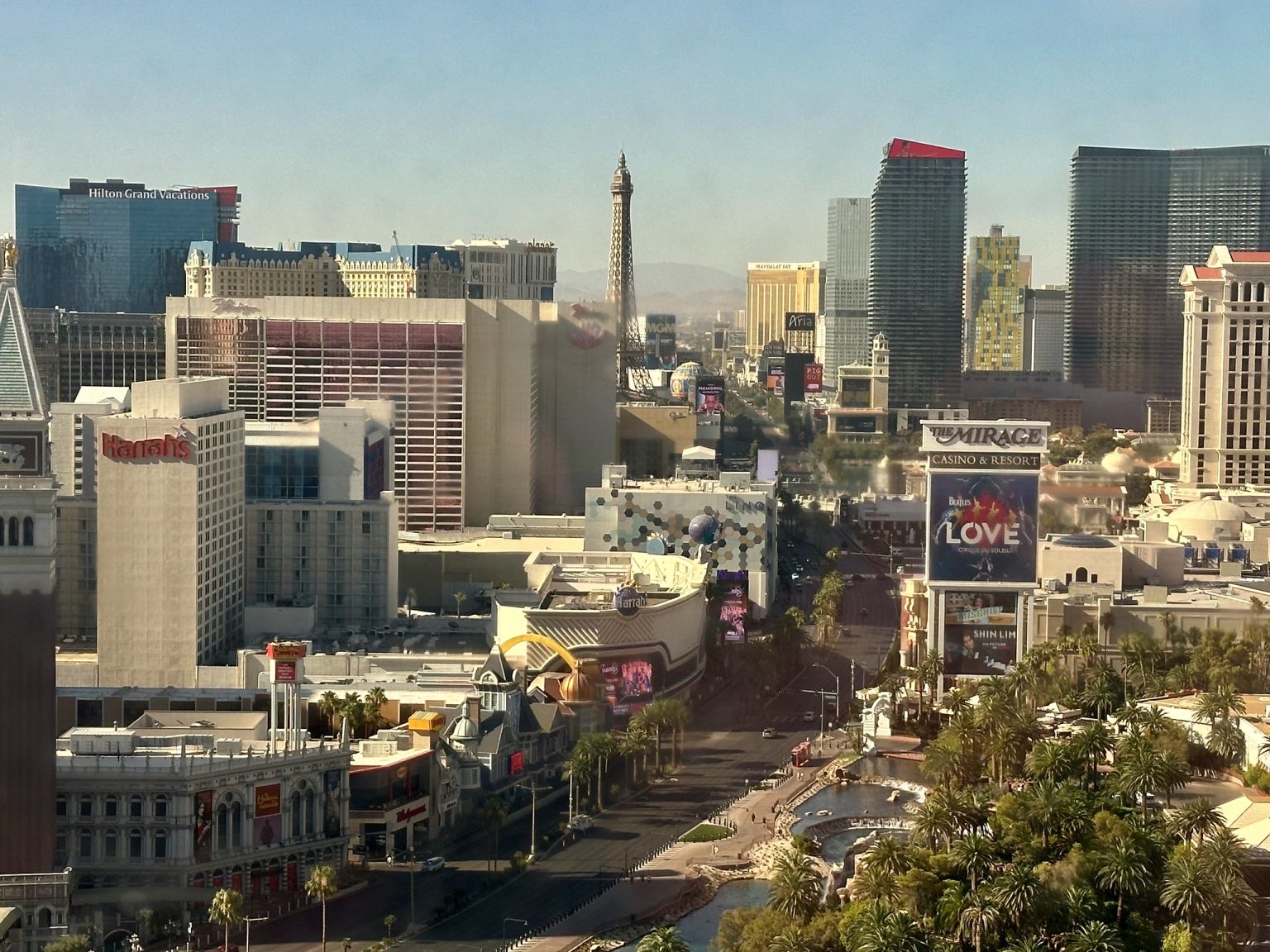Summarize this content to 2000 words in 6 paragraphs
The Las Vegas strip. (GeekWire Photo / Kurt Schlosser)
The ultra-wealthy from Seattle and Washington state may not exactly be looking to gamble away their riches in Las Vegas, but they are willing to take a bet on Nevada as a more welcoming environment when it comes to avoiding taxes on their fortunes.
A new report from Bloomberg details how some wealthy former residents of Washington are fleeing to the desert to escape new tax proposals from state lawmakers. These potential taxes, on the heels of a 7% capital gains tax passed in 2021, would include a new 5% payroll tax on large employers, and a new “financial intangibles” tax on wealthy individuals.
Bloomberg interviewed Washington tech execs who have left or are thinking about leaving, and cited comments made last week by Microsoft President Brad Smith, who is worried about potential “lasting damage” to the state’s tech sector because of the business tax proposal.
Speaking at GeekWire’s Microsoft@50 event in Seattle, Smith said the proposal would increase prices for consumers, reduce jobs, and hurt the tech industry.
Las Vegas realtor Ryan Tsui told Bloomberg that the exodus is already unfolding, as he’s helped people from Washington, some who amassed wealth working for companies like Microsoft and Amazon, search for houses priced at $8 million or more.
The new tax proposals from Senate Democrats come as Washington state faces a budget shortfall estimated to be as high as $16 billion. Washington is one of a handful of states that does not have an income tax.
Nevada has no capital-gains tax and no estate tax.
Washington’s proposed payroll tax would mimic the so-called JumpStart tax in the City of Seattle, imposing a tax on payroll expenses above the Social Security threshold — currently $176,100 per year. It would impact companies with $7 million or more in payroll expenses, and would raise about $2.3 billion annually and go to public schools, healthcare, and other programs.
The tax on wealthy individuals would tax $10 on every $1,000 of assessed value of stocks, bonds, exchange-traded funds, and mutual funds held by people with more than $50 million in these assets. It would impact about 4,300 individuals and generate $4 billion per year for public schools.
The capital gains tax, which is cited as a potential reason for why Amazon founder Jeff Bezos now calls Miami home, survived a repeal vote in the November election. That tax has collected $1.2 billion over two years to pay for public education, early learning programs and school construction.
Jeff Saling, head of the business accelerator and incubator StartUpNV, told Bloomberg that he remembered when he first heard about Washington’s then-new capital gains tax — and what it could mean for Nevada’s tech sector.
“As somebody who’s working on economic development, to see somebody shoot themselves in the foot like that, it makes me cry a little bit,” Saling said. “But at the same time, it’s a hell of an opportunity for us.”


